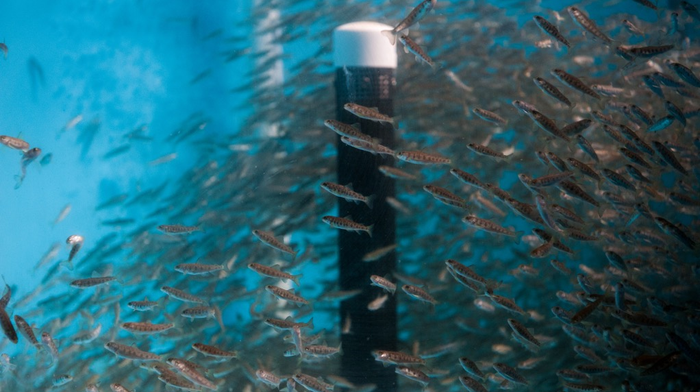Q&A: Urban Organics leads in aquaponics
Aquaponics has the potential to minimize shipping and maximize produce output. So, what’s in its way?

What if you could grow organic produce year-round, in a sustainable way, right where the people are? That was the idea behind Urban Organics, an aquaponics-based grower that turned an abandoned St. Paul brewery into year-round organic farms.
Earlier this year, the company expanded with a new 87,000 square foot facility. It’s home to 14 fish tanks and 50 five-tier racks of greens. When it reaches full capacity, it will provide 275,000 pounds of fresh fish and 475,000 pounds of produce per year to local consumers. Here’s why President Dave Haider thinks he’s cracked the code to sustainable farming, and what still needs to be done for aquaponics to reach its full potential.
How has your reach evolved since you started?
Dave Haider: In the beginning we worked with a local retailer who picked up from us directly. It was mainly bunched kale and swiss chard. Now, we grow salad greens of many varieties, and we have nine different salad blends that are all in 5-ounce clamshells. We are currently in co-ops in five different states, and work with a local healthcare provider to get some of our produce to them in bulk for their cafeteria and patient meals. We also supply a handful of local restaurants.

What are some of the biggest challenges you’ve faced, and how did you get around them?
DH: The same challenges we had in the beginning are the ones we still see today. For the most part, we’re still pioneering in this industry so there isn't a playbook we can turn to. So there's a lot of trial and error, and it's a good thing we have a good team of engineers that have helped us along the way.
Specifically, our challenge is still optimizing this controlled environment. Again, there is not a playbook so if you look at the things we worry most about it’s power outages and pest management. If you're farming outside, you have beneficial insects available, but that isn’t the case with us. We have to create this whole ecosystem indoors.
Do you think that aquaponics is a potential wide-spread solution to demands for natural food? Does anything stand in its way?
DH: I think it's more of a consumer education issue than anything. Consumers need to educate themselves on where food comes from. Our thought going into this was, let's grow produce and raise fish where food is consumed most, and that's in densely populated areas. Let's stop growing in desert areas and then shipping it across the country.
About the Author(s)
You May Also Like


